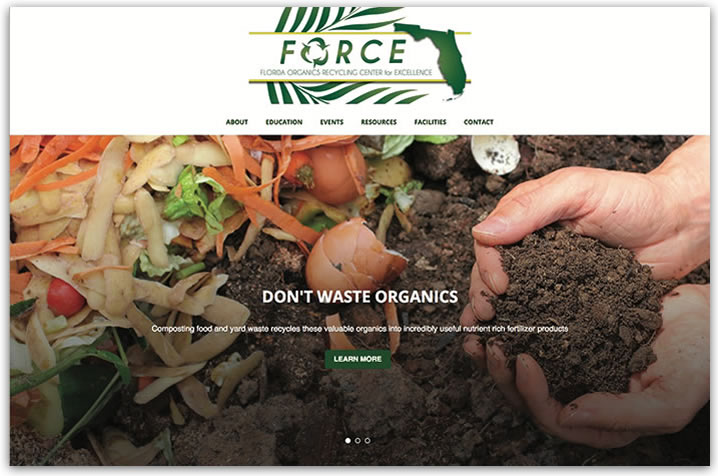Food Donation Act Of 2017
Representatives Marcia L. Fudge (D-OH), Dan Newhouse (R-WA), Chellie Pingree (D-ME) and James P. McGovern (D-MA) introduced the Food Donation Act of 2017 (H.R. 952) in early February. The legislation, intended to boost food donations across the U.S., enhances the coverage of the Bill Emerson Good Samaritan Food Donation Act (Emerson Act), passed by Congress in 1996. The Emerson Act promotes food donation by providing civil and criminal liability protection to food donors and food recovery organizations. It provides a broad base of liability protection that was intended to encourage food donations, yet donors are often unaware of the Act’s protections. Many food manufacturers, retailers, and restaurants still cite fear of liability as a primary deterrent to donating food. The Food Donation Act of 2017 will help to clarify some of the ambiguous terms in the Emerson Act and promote awareness by delegating authority over the Act to the U.S. Department of Agriculture (USDA) and directing the USDA to provide guidance and promote it.
Further, explains an article in the Harvard Food Law and Policy Center (FLPC) e-newsletter, the proposed legislation would extend liability protection in several ways that support modern food donation, such as giving liability protection to donations sold at a reduced price to recipients and to certain direct donations given to those in need. This will increase efficiency, reduce costs, and enable timely use of perishable food, notes FLPC.
Tackling Food Waste, Nashville-Style
In 2015, the Natural Resources Defense Council (NRDC) launched the Nashville Food Waste Initiative (NFWI) to develop high impact policies, strategies and practical tools to serve as models for cities around the country. Nashville was selected as a model as a midsize, demographically diverse metropolis in the center of the country. The NFWI engages governments, consumers, restaurants, community institutions, and retailers to reduce and prevent food waste, redirect surplus food to hungry people, and compost and anaerobically digest what’s left to help build healthy soil.
NRDC staff have been connecting people from across the Nashville community to leverage current initiatives while identifying and implementing new approaches around prevention, donation and recycling. Examples include:
• Employ creative assets from the NRDC/Ad Council Save The Food awareness campaign, such as billboards and social media outreach, within the city.
• Collaborate with select food service providers to help quantify the amount of food wasted, using innovative LeanPath software to help prevent waste and reduce costs. Conduct a baseline food waste assessment to estimate the amounts and types of food wasted in Nashville’s residential and commercial sectors. The NFWI has gathered household information through tools like kitchen diaries and consumer surveys to understand how much and what types of food are wasted, as well as some of the underlying causes of food waste.
• Partner with Zero Percent to drive more restaurants to its app that directs prepared food donations to local social service organizations.
• Advise Resource Capture, LLC, a local nonprofit, on the siting and development of an anaerobic digester to supplement the local composting infrastructure.
New Data Emphasizes Safety Of Compost And Digestate
Two studies released by the U.K. Waste Reduction and Action Programme (WRAP) in mid-January indicate that both compost and digestate, when certified under the U.K. Biofertiliser or Compost Certification Schemes, are safe to use in agriculture. In both cases a wide range of hazards were considered and risks from compost and digestate use were considered to be low or negligible in all scenarios examined. The certification schemes provide reassurance to users that compost and digestate are safe, reliable and of consistent quality and enable producers to become certified to PAS100 and PAS110 quality protocols respectively.
The composting report acknowledges that despite the U.K.’s regulatory constraints for compost production and use, including the PAS100 certification, “key market stakeholders have raised questions around the quality, safety and usability of composts — both on land used to grow crops for human consumption, and land grazed by livestock.” This led to WRAP’s “Confidence In Compost Program,” which included three comprehensive risk assessments devoted to different types of compost in different uses: 1. Green compost (garden and yard trimmings) used on land where livestock are grazed, or fodder grown; 2. Green/food compost used on land where livestock are grazed; and 3. Green and green/food compost used on land where crops are grown for human consumption. “The conclusions from this research underpin WRAP’s ‘Renewable Fertiliser Matrix’, which clearly illustrates cropping and grazing situations where green and green/food composts can be safely used,” states the report.
The separate digestate report explains that “the conclusion of this study is that the risks associated with the use of PAS110 digestates in Great Britain agriculture are assessed to be acceptably low and in many cases, negligible. … it is also appropriate to recognize that regulatory compliance, strict adherence to the requirements of the PAS110 digestate specification, and a precautionary approach to exposure is prudent. Opportunities to minimize prolonged exposure to any waste-derived material — as well as natural soils and fertilizers — is a sensible precaution. Therefore, normal hygiene practices should be adhered to, such as avoidance of direct handling.”










